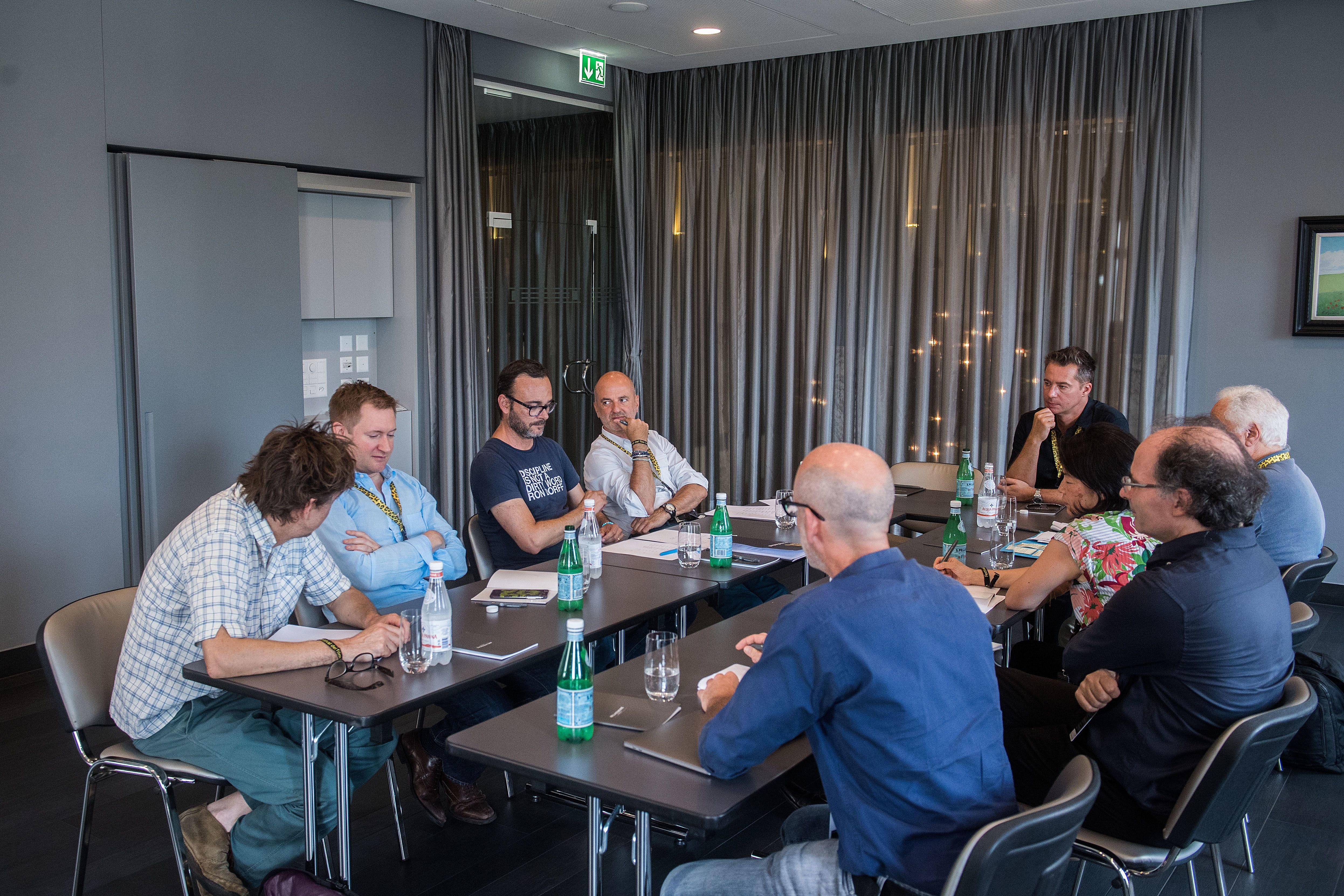Locarno StepIn Tackles Shifts in Storytelling Norms
By Nick Vivarelli
LOS ANGELES (Variety.com) – Having disrupted film financing and distribution models, global streaming platforms are now subverting storytelling preconceptions.
That, in short, is latest shakeup prompted by the ongoing seismic shift and one of challenges that European indie-film industry executives will be thrashing out during this year’s StepIn think tank, titled Brave New World, Aug. 2 at the Locarno Film Festival in Switzerland.
Now its sixth edition, StepIn is an informal event at which top execs share their experiences, get inspired and brainstorm new ideas. Similar to last year, the core of the conversation will be the future of independent production and the theatrical experience in the digital age.
But, as StepIn project manager Marcello Paolillo points out, aside from changes brought about in the business by technology, box-office results over the past couple of years paint a picture that undermines basic tenets that have been assumed for decades, “revealing audience segments that have been dismissed and underestimated for way too long,” he says.
According to Paolillo, “perhaps the future of the theatrical experience also depends on a better knowledge and understanding of our society.”
The Black List founder Franklin Leonard, who has long had his thumb on the pulse of screenwriting coming out of Hollywood, says the notion that constraints dictate parameters of movie narratives are starting to change.
“There’s a lot of conventional wisdom in Hollywood, about what works and what doesn’t; that’s all convention and no wisdom,” says Leonard, recruited by Paolillo as a StepIn keynote speaker.
However, Leonard notes, the recent global success of blockbusters such as “Wonder Woman” and “Black Panther,” “enabled by people who had to fight twice as hard,” have started to lead some studio people “to re-evaluate their conventional wisdom and recognize it for the sexist, racist garbage that it is.” The process is happening too slowly, he adds.
Leonard, who after advocating Hollywood’s best unproduced screenplays for years recently became a producer, doesn’t think American audiences have changed.
It’s just that “for the entire history of Hollywood, the industry has been absolutely terrible at understanding who the audience is, and what they actually wanted,” he says, citing disproven longtime assumptions that female-driven action films were not viable in the commercial marketplace and that audiences outside the U.S. weren’t interested in seeing black people on screen — despite Eddie Murphy’s “Coming to America” and Martin Lawrence’s “Big Momma’s House” franchise scoring big overseas paydays.
Leonard says Netflix is the biggest game-changer when it comes to representing the reality and the culture that’s out there. The streamer has its detractors within the European indie film community — as its recent exclusion from Cannes made clear — though its opponents tend to be the ancien regime.
He cites “Nanette,” Australian comedian Hannah Gadsby’s groundbreaking Netflix special, “as probably the most important hour of standup ever done,” pointing out that “if you had made something like that” five years ago “there is no distribution plan that would have allowed more than a million people to see it” whereas, via Netflix, it went global with a keystroke.
Leonard considers the algorithms and big-data analytics known to factor into how Netflix execs greenlight projects to be a positive.
“It doesn’t mean that you are feeding a script into a computer and getting an answer on whether or not the movie should be made,” he says. “I think there is an opportunity for data to help guard against our biases, be they sexist, racist, whatever.”
Embracing technology is clearly becoming increasingly crucial for survival in all aspects of the indie film business.
Having “an insight into what will be technically possible two or three years from now, and what it will mean for the platform you are working for as a buyer, or producing for as a producer … should be part of market knowledge for everyone in the film business,” says Matthijs Wouter Knol, director of the Berlin Film Festival’s European Film Market, also a StepIn keynote speaker. Instead, “there is a big fear of technology across the [indie] industry.”
Knol, who will be chairing a StepIn roundtable called the Role of Film Markets in This New Landscape, says the EFM has been introducing 10 European tech startups each year that provide tools and services in the fields of distribution, production, marketing and more to film companies at the Berlin market.
The other StepIn tables at which producers, distributors, sales agents, exhibitors and other film industry execs will share their thoughts on the most pressing issues they face are called A New Era for Film Producers, the Theatrical Life of Independent Films and Are Films Reflecting a Change in Society?, chaired by Leonard, of course.

